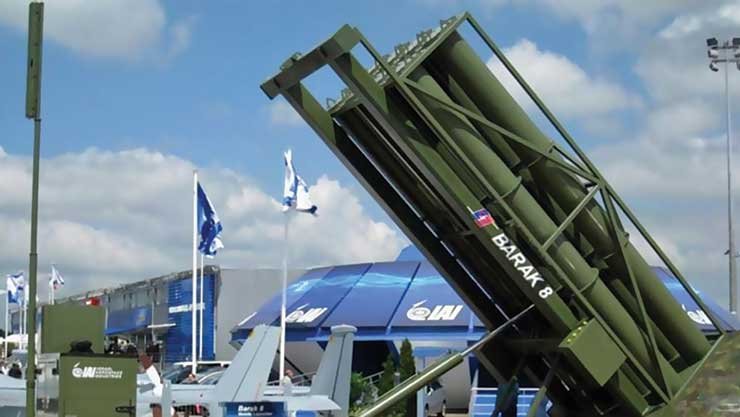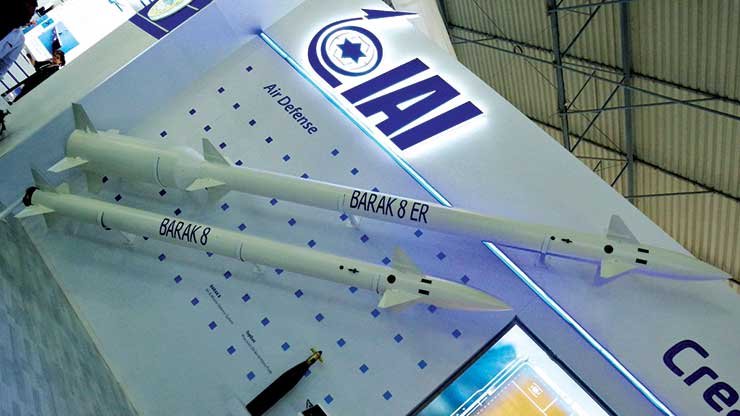 Colonel (Res.) Eli Alfassi is Executive Vice President (EVP) Marketing of Israel Aerospace Industries Ltd (IAI) since 2017. Prior to become EVP Marketing, he was Corporate Vice President India Operations. After completing 28 years of service in Israel Defense Forces (IDF) in various command and staff roles, he joined IAI in January 2004. Col (Res.) Alfassi also served as IDF’s military attaché in India and headed the Israeli Ministry of Defense delegation to India for five years.
Colonel (Res.) Eli Alfassi is Executive Vice President (EVP) Marketing of Israel Aerospace Industries Ltd (IAI) since 2017. Prior to become EVP Marketing, he was Corporate Vice President India Operations. After completing 28 years of service in Israel Defense Forces (IDF) in various command and staff roles, he joined IAI in January 2004. Col (Res.) Alfassi also served as IDF’s military attaché in India and headed the Israeli Ministry of Defense delegation to India for five years.
His key responsibilities include overall planning, development and execution of IAI’s marketing initiatives and other major activities. Alfassi holds a Bachelor’s degree in history from Tel Aviv University, and a Masters in Political Science and National Security from the University of Haifa.
In an interview to ARIE EGOZI, International Roving Correspondent, Raksha Anirveda, Colonel (Res.) Eli Alfassi dwelt upon IAI’s future marketing plan for India. Edited excerpts:
What is importance of the Indian market for IAI?
This market is very important for us. In the past, we delivered our systems to all the arms of the Indian armed forces. This includes the early warning Phalcon aircraft, missiles, radars and satellites. The Barak-8 naval missile is a joint program of our company and the Indian Ministry of Defence (MoD). We currently have industrial cooperation agreement with almost 100 Indian companies.
How IAI organized its operations to meet the requirements of the Make in India policy?
We are involved in over 100 projects in India. Some of the developed systems have been supplied; others are in different development stages. We are also involved in contract to serve some of our operational systems used by India.
The Barak-8 is our flagship program. The main activity of this program is now in India, with Bharat Electronics Ltd (BEL) as main contractor.
We have entered our Make in India activities in 2005, and since have increased it.
Do you plan to extend your cooperation with Indian companies?
Yes, and we work on that all the time. We have major agreements with BEL and HAL and we look to increase this cooperation and establish new ones. We are negotiating with some potential new partners right now.

When a Request for Proposal (RFP) is issued for a certain system, we get in touch with an existing partner in India, or talk with a new one, in an effort to submit joint proposals.
With existing activity, and big potential how has IAI organized the technology transfer to local companies?
This is on the table, as recently we won some new contracts. We streamlined the technology transfer to Indian companies.
What are the main segments in which IAI see the biggest potential in the Indian market in the coming years?
We are competing on supplying additional early warning aircraft, and in this we have identified potential in space activities, radars of different types, communication systems, EW and additional missile systems.

Many companies from different countries have identified the big potential in the Indian market. Do you see a growing competition especially from American companies?
The growing competition is a fact. Many companies identified India as a strategic market, and offer existing systems but also future ones. The competition, especially with the American companies is not simple, as the US is a world power, with the political potential every agreement with an American company brings.








